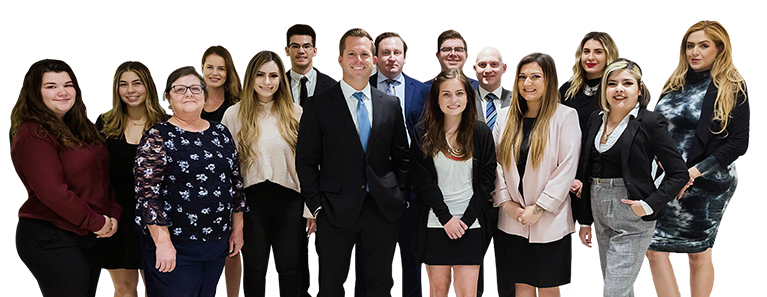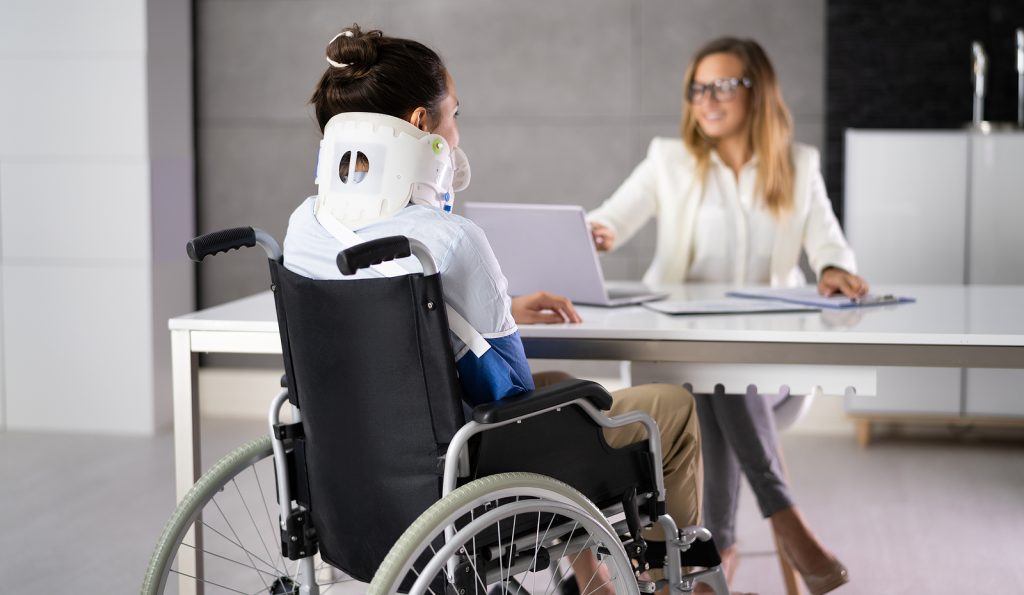Qualifying for Social Security Disability (SSD) benefits is not easy, so you should have the insights and guidance of a San Diego disability attorney from the very beginning, even before you file an application for benefits.
If you are disabled and do not receive disability benefits, apply at once. Every day that you delay is a day that you’re losing benefits, and a statement from your doctor which says that you are disabled will not by itself be adequate to receive benefits. It’s a far more complicated process.
How does the Social Security Administration (SSA) define a disability? Who is eligible to receive SSD benefits? Can you appeal a decision by the SSA to reject your claim for benefits? What steps will you have to take?
If you will keep reading this brief discussion of SSD benefits and eligibility, you’ll learn the answers to these questions, but if you are a disabled person seeking SSD benefits, you must also have the sound advice and reliable legal services that a San Diego disability lawyer can provide.
Who May Receive SSD Benefits?
SSD benefits are paid monthly to workers who’ve been disabled before reaching retirement age. Qualified applicants have worked, paid FICA (Social Security) taxes, and suffer from at least one condition that meets the SSA’s definition of a disability.
Social Security Disability benefits are only available to workers who have a “severe, long-term, total” disability. “Long-term” means that your disability is anticipated to last for at least one year. “Severe” means you are limited in your ability to perform simple work-related tasks.
A “total disability” means that you cannot perform “substantial gainful activity” (meaning that you cannot earn income) for at least a year. Your age is also a key factor in determining if you can receive SSD benefits, and the SSA has established five age categories for applicants:
- Applicants ages 18 through 44 are “young.”
- Applicants ages 45 through 49 are “younger.”
- Applicants ages 50 through 54 are “approaching advanced age.”
- Applicants ages 55 through 59 are “advanced age.”
- Applicants ages 60 through 65 are “approaching retirement age.”
What Will You Need to Show the SSA?
When you submit your application for Social Security Disability benefits, be prepared to give the Social Security Administration the:
- dates of your treatments
- names of the hospitals, clinics, and doctors that have provided you with treatment
- names of the drugs prescribed to you
- results of recent medical examinations
- names of your most recent employers and the dates of employment
- details for contacting your insurance provider or workers’ compensation carrier
- details for contacting a close friend or relative
When Should You Contact a Disability Lawyer?
A San Diego disability attorney can review – or help you prepare – your application for SSD benefits to ensure that it’s accurate and complete and that there are no mistakes or misunderstandings – at least on your part – that might cause a delay or denial of your benefits.
If you do not contact a San Diego disability lawyer before you submit your application for SSD benefits, you will need a disability lawyer’s help eventually if your application for Social Security Disability benefits, like most first-time applications, is rejected.
If your application for SSD benefits is denied by the SSA, then you must obtain the services of a disability attorney at once. A disability lawyer will handle an appeal of that decision on your behalf. While most initial applications are rejected by the SSA, many appeals are successful.
In fact, an appeal hearing before an administrative law judge is where a Social Security Disability benefits applicant has his or her best chance to be awarded disability benefits.
How Does the SSA Decide if You Are Disabled?
The SSA’s guidelines for deciding who is disabled are based on three “exertional levels” of work or “Residual Functional Capacity (RFC).” Applicants are categorized as capable of medium, light, or sedentary work. Every applicant for SSD benefits is classified in one of these categories:
- Sedentary: Someone who can do sedentary work has the ability to sit in one position for six hours a day and lift – usually – ten pounds.
- Light: Someone who can do light work has the ability to stand or walk six hours a day and to lift – usually – twenty pounds.
- Medium: Someone who can do medium work has the ability to stand or walk six hours a day and to lift twenty-five pounds routinely and fifty pounds intermittently.
- The decision to grant or deny Social Security Disability benefits takes into account the applicant’s RFC level, age category, and work history. These factors are entered into a vocational “grid” which determines if a claim for benefits should be approved or denied.
For instance, a 35-year-old with a medium Residual Functional Capacity level will likely not be approved for benefits, but a 60-year-old with a sedentary RFC level probably will be approved.
What Are the Exceptions?
If you meet some of the requirements, you may be allowed to receive benefits even if your spot on the “grid” indicates your claim should be rejected. That’s because the SSA also considers how your emotional and psychological limitations may affect your capacity to work.
The SSD application process is quite lengthy, exceedingly difficult, and routinely confusing. Even after you have been approved for SSD benefits, six months or more may elapse before you actually receive your first disability benefit payment.
Although there is nothing in the law that lets a disability lawyer expedite the application process, you should have a Social Security disability lawyer help you with the application forms and other paperwork and, if necessary, help you prepare for an SSD appeal hearing.
What Else Should You Know About Disability Benefits?
Should you not qualify for SSD benefits, you may qualify for Supplemental Security Income (“SSI”), a federal program that provides assistance to low-income blind and disabled workers.
Although Social Security Disability and Supplemental Security Income are separate and distinct benefit programs, both of these programs are administered by the SSA, and both programs entail a quite lengthy and complicated application process.
If you cannot work, you are probably entitled to disability benefits. You can make the call now to schedule a consultation with a Southern California disability attorney who will help you determine what benefits you are entitled to and will help you acquire those benefits.














